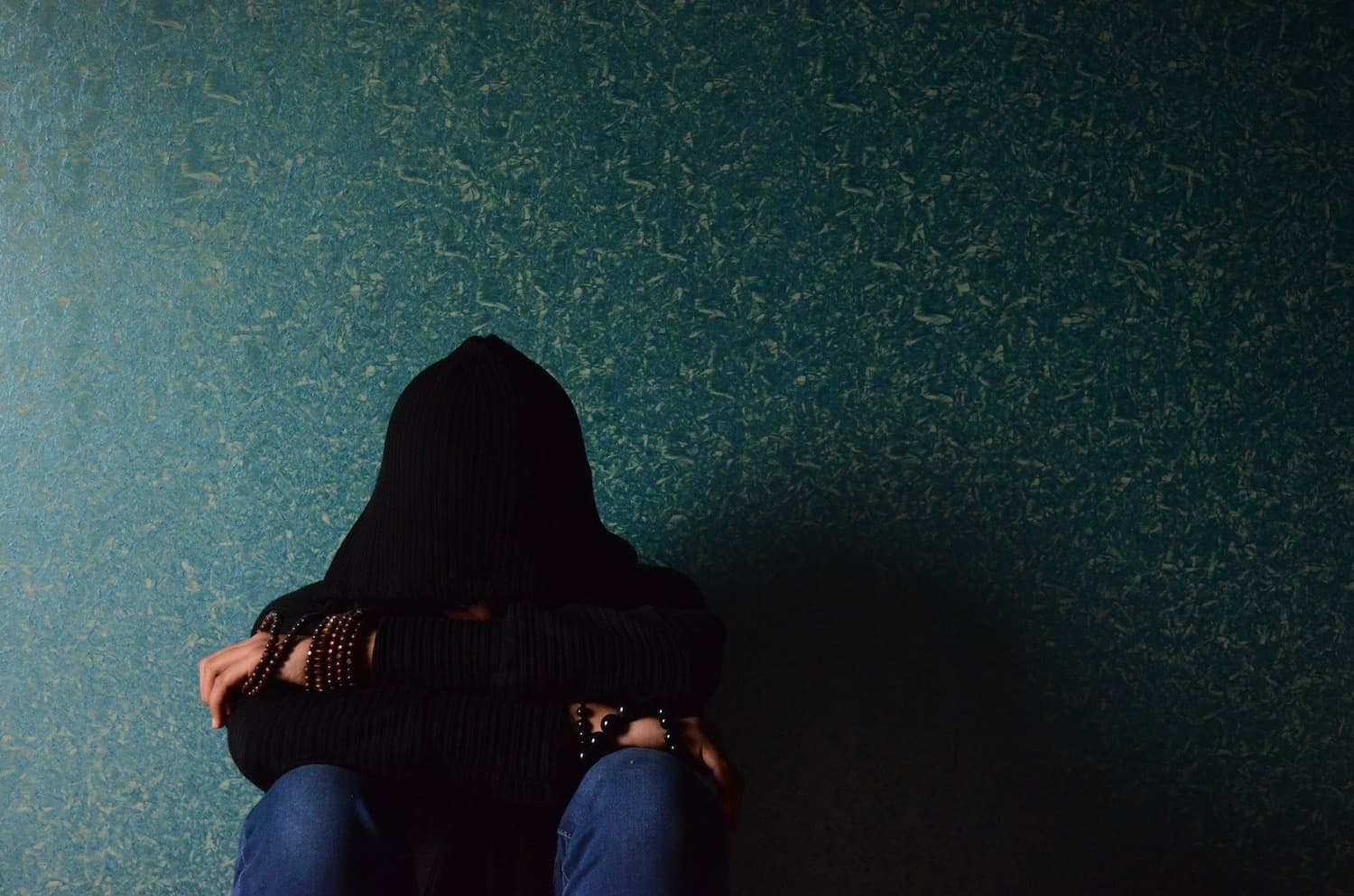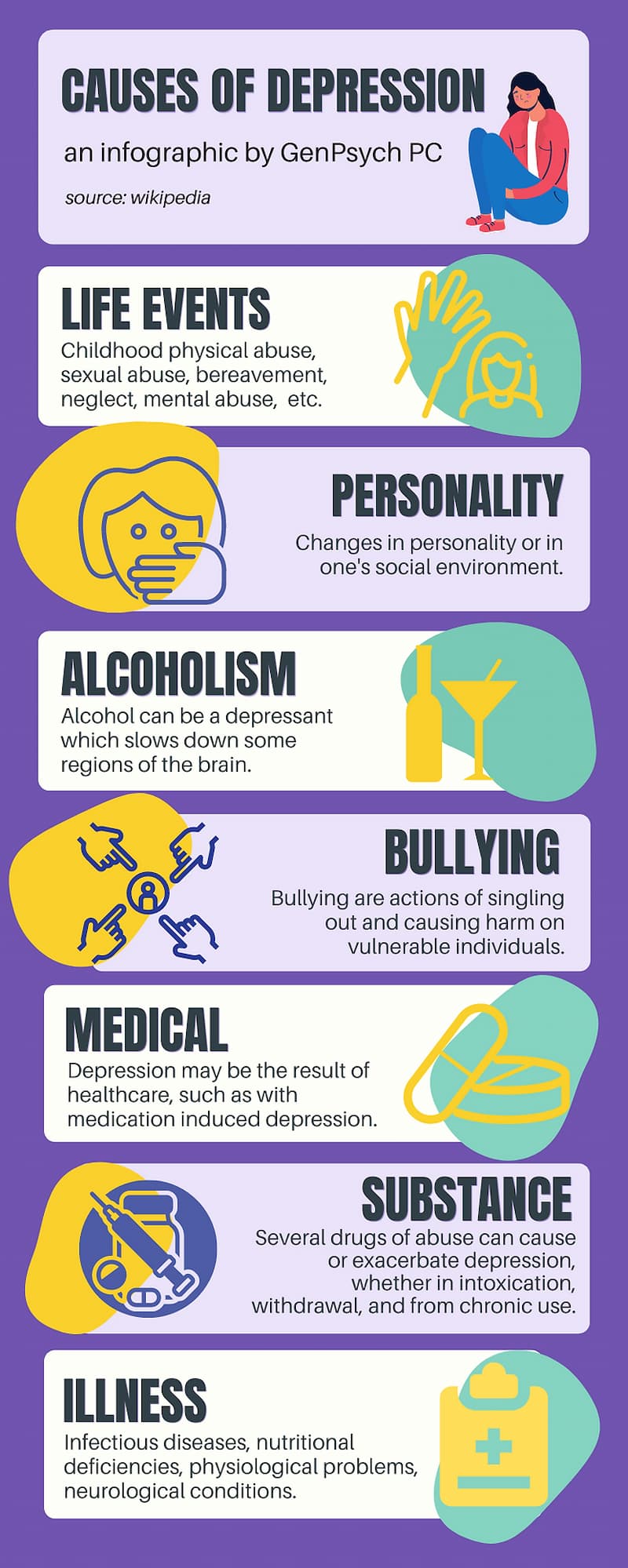
Have you been feeling a little low lately but not sure if it's just a bout of the blues? Depression is more than just a feeling of sadness, so if you've been feeling out of sorts for a while, it's possible that you're suffering from this common ailment. We've put together a short list of the signs of depression, so if you recognise any of them, talk to a qualified health practitioner to see what you can do.
What is Depression?
Firstly, depression is more than just feeling down or moody. It is a mood disorder that affects the body and mind, causing both psychological and physical symptoms. Depression is surprisingly common, with up to one in four women and one in six men experiencing a form of depression at some point in their lives. Depressive disorders usually last two weeks or longer, depending on the severity of one's symptoms.
Depression can be fatal if not treated early enough. It can lead to substance abuse, relationship problems and suicide attempts. It's a good thing that almost everyone who suffers from depressive symptoms can be helped, so it's worth looking out for the signs.
Some Common Signs of Depression
The symptoms of depression vary from person to person. No one person will suffer from every sign of depression, but if you are suffering from a few, have a chat with your chosen mental health professional. Here are some common symptoms of depression:
- increased irritability and frustration
- losing interest in or not getting pleasure out of social activities and hobbies
- feelings of guilt, hopelessness or worthlessness
- decreased levels of energy or feeling fatigued
- irregular sleep patterns or insomnia
- mood swings
- poor concentration or difficulty making decisions
- low self-esteem or a feeling of hopelessness
- loss of appetite and weight loss
- weight gain due to overeating
- negative thoughts regarding the future
- loss of identity
- feeling alone, even if you are surrounded by other people
- recklessness or taking unnecessary risks
- feelings of anxiety
- feeling upset or tearful for no apparent reason
- avoiding tasks such as attending work or school
- increased use of substances such as alcohol and recreational drugs
- physical symptoms that do not respond to treatment (e.g. headaches)
- suicidal thoughts
What Are the Causes and Risk Factors for Depression?
Different forms of depression result from different triggers, including genetics, psychological or environmental factors. Research conducted on clinical depression shows that it may be related to a chemical imbalance due to changes in the function of brain chemicals or neurotransmitters, causing cognitive distortions in patients and affecting how their bodies regulate their emotions. Another possible cause of depression may be inflammation in the body. When there is inflammation in one part of the body, it can affect other parts as well. This is why depression has been linked with certain diseases such as fibromyalgia and rheumatoid arthritis.
However, researchers do not discount the possibility of the following increasing the risk for depression:
- Stressful life events
- A family history of depression, bipolar disorder, anxiety disorder or other mental disorders
- Prolonged grief event due to the loss of a loved one
- Serious injuries
- Hormonal changes
- Certain medications
- Alcohol and substance abuse

Source: GenPsych
Different Types of Depression
There are many types of depression, each with unique symptoms. It's important to note that these conditions typically co-occur in patients rather than existing on their own. That being said, there are unique symptoms for each type of depression that are divided into four main groups:
Major Depression
Also known as unipolar depression or major depressive disorder, this is the most severe depression with five or more depressive symptoms present for at least two weeks. It causes constant feelings of sadness that disrupt daily activities. There are different types of major depression, including seasonal affective disorder (SAD), postpartum depression, psychotic depression and catatonic depression.
Bipolar Depression
A bipolar disorder is characterised by extreme mood swings. Some days a patient may experience manic episodes or excessive happiness, while on other days they are extremely sad. A mixed episode, which combines mania and depressive symptoms, is also possible. They may also experience either weight loss or gain, insomnia or hypersomnia, psychomotor agitation or retardation, fatigue, diminished ability to concentrate and suicidal ideations.
Dysthymia Depression
This type of depression lasts for years and varies in severity from mild to severe. Although you may feel depressed most of the day, every day, you don't experience the symptoms required for a major depression diagnosis. Instead, a person with dysthymia experiences a depressed mood most of the time and has at least two other symptoms from either group of symptoms defined by DSM-5 criteria. Symptoms must be present for at least two years to receive this diagnosis.
Cyclothymic Disorder Depression
This condition occurs for many periods of time over several years, usually two or more. This type does not include full depressive episodes as required in major depression or bipolar depression. A person with cyclothymic disorder experiences hypomanic and depressive symptoms but without meeting the severity requirements. Cyclothymic disorder depression can be diagnosed when there have been numerous periods of depression and periods of elevated mood lasting two months or more within the same year for at least two years.
It's important to note that depression, irrespective of its category, can cause significant impairment at work, school, social life and family relationships. so it requires immediate treatment.
What's an Effective Treatment for Depression?
There are different treatment methods available for people suffering from depression. The condition can be treated with antidepressant medications, a form of therapy such as cognitive behaviour therapy, yoga or light therapy, or a combination of conventional medicine and complementary therapies.
The treatment of depression will take time because the goal is to help the patient regain their interest in their usual activities and independence. Providing them with the proper coping skills is key to helping them manage their symptoms better.
Also, it is very important for depressed individuals not to rely on drugs and alcohol, but rather on their family and friends for support. Regular exercise and relaxation techniques like listening to music and laughter therapy have also been shown to have positive effects on depression.
Originally published on Jul 05, 2007








